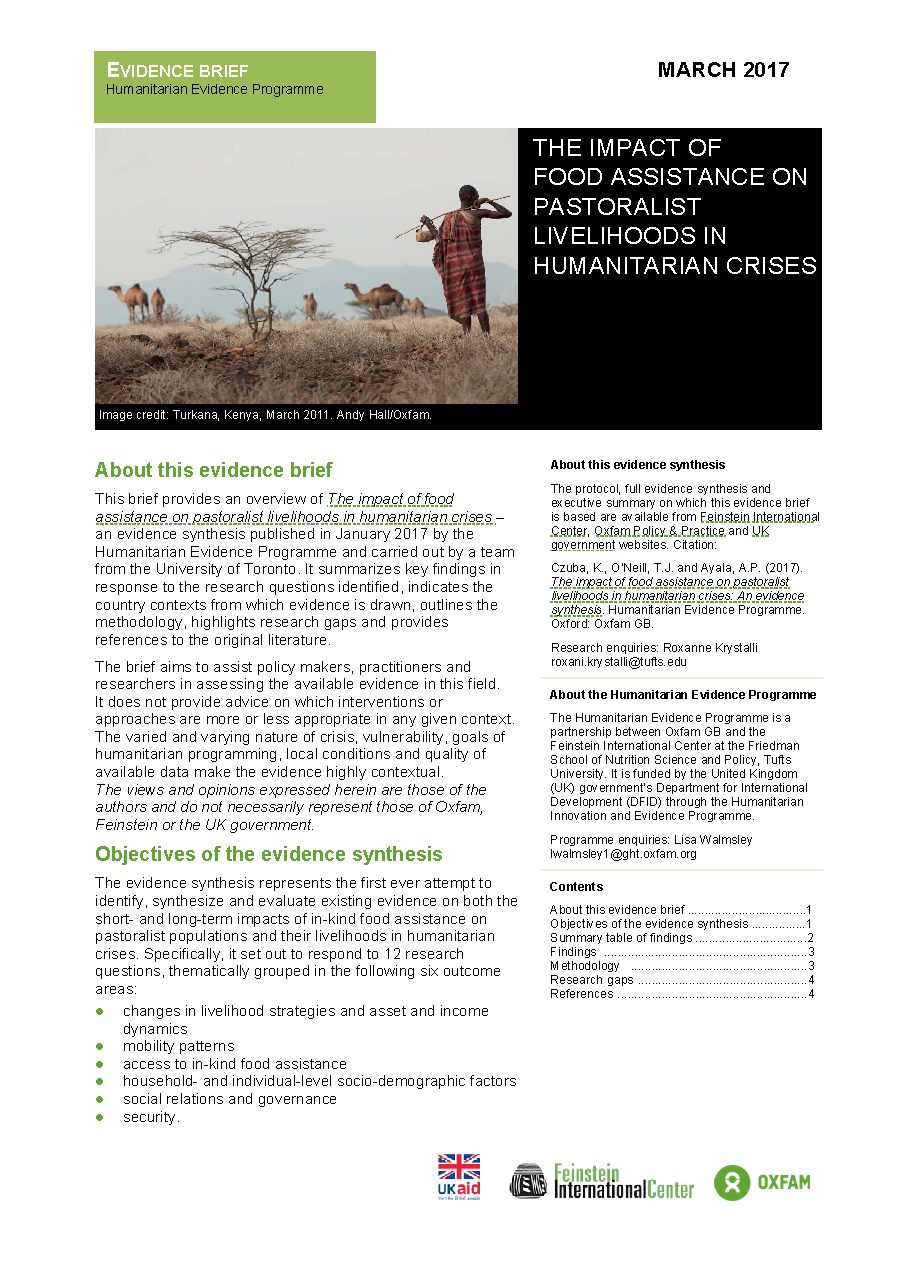This is an evidence brief, accompanying the full systematic review on the impact of in-kind food assistance on pastoralist livelihoods in humanitarian emergencies.
Pastoralists rely on coping and adaptation strategies that have historically allowed them to achieve high levels of productivity, manage the hazards and unpredictability of life in the marginal areas that they occupy and moderate the impacts of shocks. But despite the unique suitability of these strategies to their livelihoods, the food security of many pastoralist populations – especially in Africa – is increasingly under threat. Crises faced by pastoralists have increased in frequency and intensity in recent decades. Assistance has taken many forms, but nutrition and food security have been the priorities of most humanitarian interventions, which have usually involved direct provision of food in-kind to affected populations. But can such food aid address food security? Does it contribute to the erosion of livelihoods? Does it lead to a change in mobility patterns?
This evidence synthesis represents the first ever attempt to identify, synthesize and evaluate existing evidence on both the short- and long-term impacts of in-kind food assistance on pastoralist populations and their livelihoods in humanitarian crises.
- The evidence brief is accompanied by a stand-alone executive summary and the full systematic review. It forms part of a series of humanitarian evidence syntheses and systematic reviews commissioned by the Humanitarian Evidence Program.







